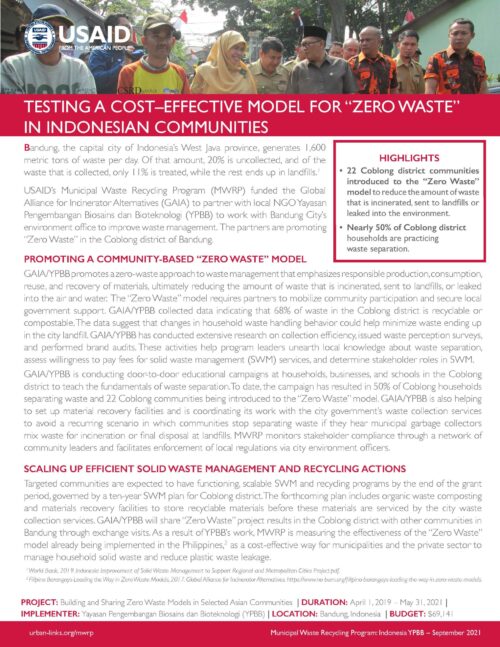Testing a Cost-Effective Model for “Zero Waste” in Indonesian Communities
USAID’s Municipal Waste Recycling Program (MWRP) funded the Global Alliance for Incinerator Alternatives (GAIA) to partner with local NGO Yayasan Pengembangan Biosains dan Bioteknologi (YPBB) to work with Bandung City’s environment office to improve waste management.
